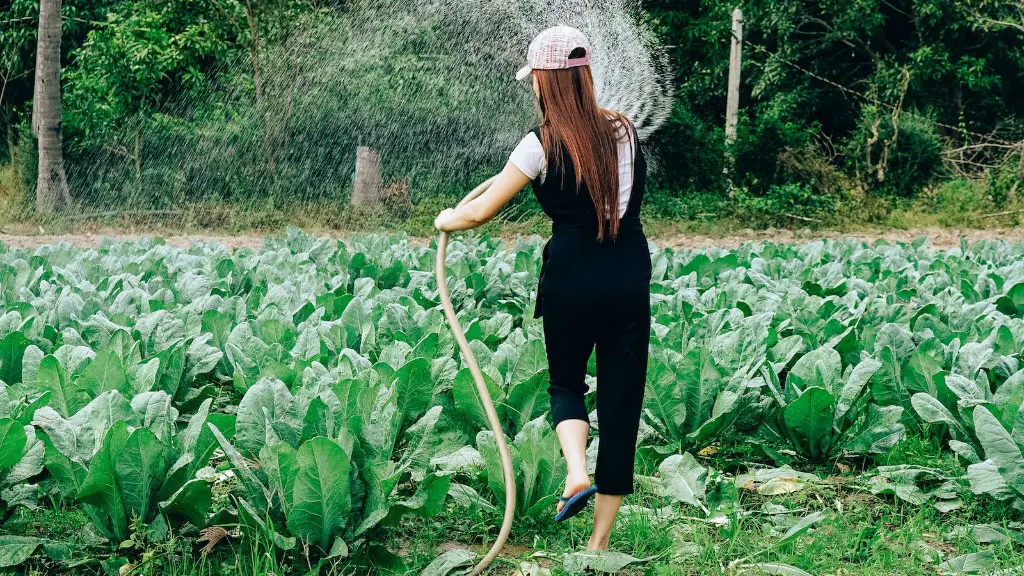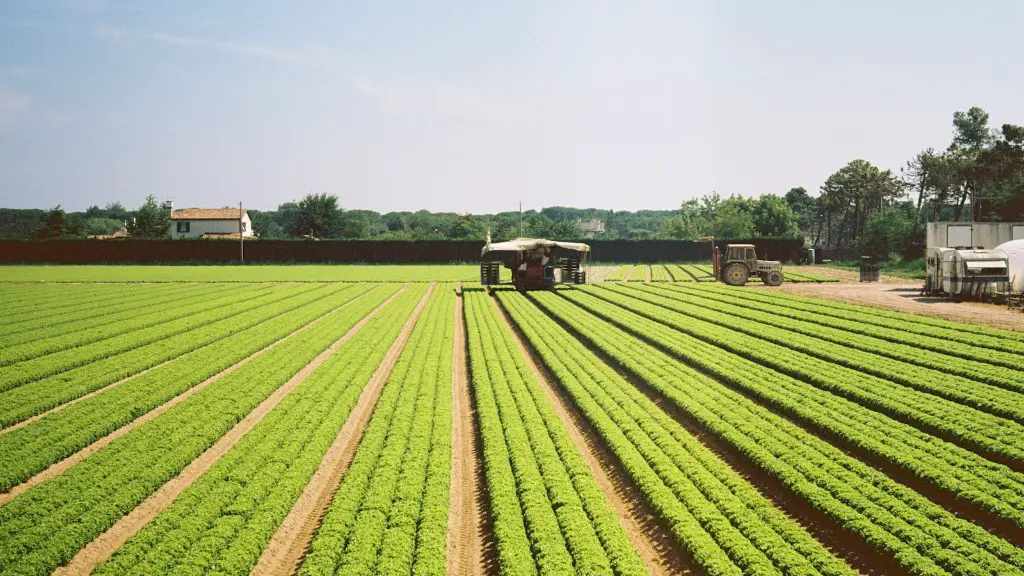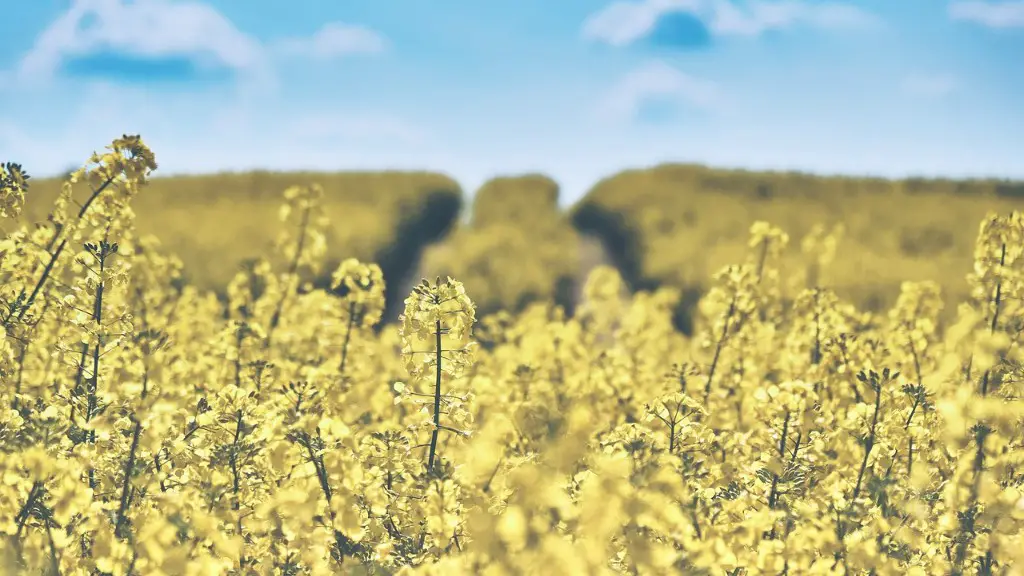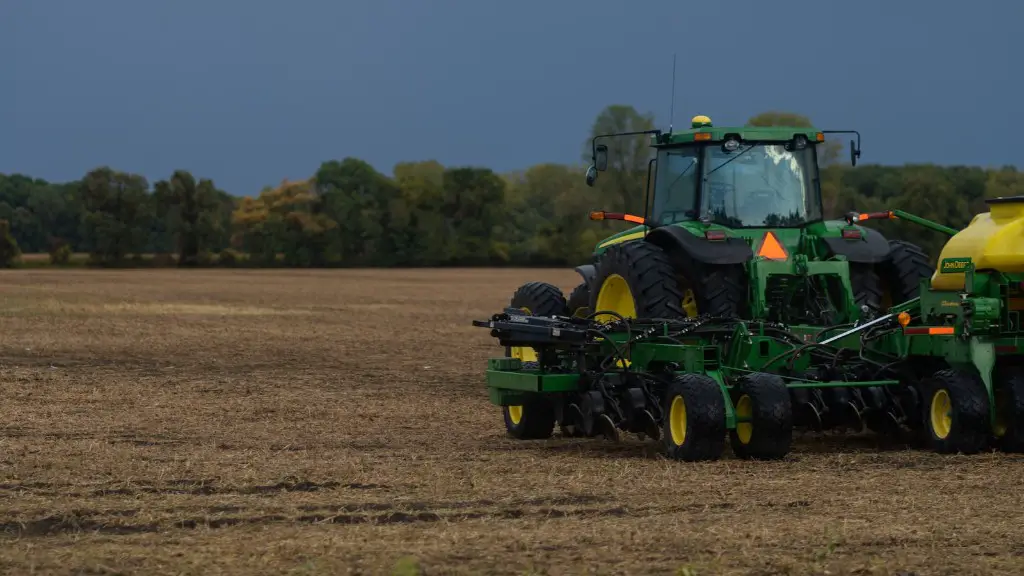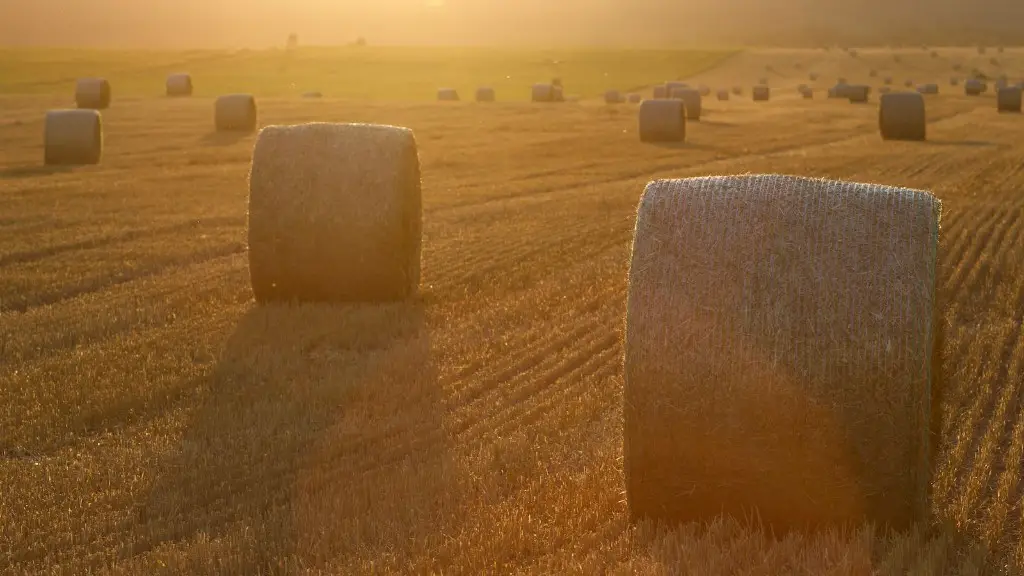Agriculture is the science and art of cultivating plants and livestock for food, fiber, and other products. It includes the practices of animal husbandry, crop cultivation, and horticulture. Soil science, plant science, and entomology are applied to the agriculture sector.
Environmental science is the study of the interactions between the physical, chemical, and biological systems of the environment. It is a multi-disciplinary field that includes the study of the atmosphere, hydrosphere, and biosphere. Environmental science seeks to understand and protect the environment by studying how it works and how it is affected by human activity.
Agriculture is the study of the science and art of land management, with a focus on producing crops and raising livestock. Environmental sciences is the study of how humans interact with the natural world, and how our activities impact the environment.
What is agriculture environmental science?
Agriculture has been a part of human civilization for thousands of years and it is an essential part of our survival. It is the process of growing crops and raising livestock for human use. Agriculture not only provides us with food, but also with fiber, medicines, and fuel. Without agriculture, we would not be able to survive.
Agriculture science is the study of all things related to agriculture, while environment science is the study of the quality of air, water, and land, and its contamination.
What do you do in agricultural science
Agricultural and food scientists play a vital role in improving the productivity and sustainability of field crops and farm animals. They conduct research and experiments to develop new and better ways to process, package, and deliver food products. In doing so, they help to ensure that the food we eat is safe, nutritious, and delicious.
If you are considering a career in agriculture, pursuing a degree in agriculture can be a great way to set yourself up for success. While you may be able to find jobs in agriculture without a degree, having a degree can help you land better jobs and open up other opportunities in the industry. If you are passionate about agriculture and want to make a career out of it, pursuing a degree in agriculture is a great option.
Is agriculture science a good career?
This is a great job opportunity for a career in agriculture. The job is best suited for those who have a keen enthusiasm in the agricultural settings and want to apply their engineering knowledge in that field. This will help them to understand the agricultural process and provide them with an opportunity to improve the efficiency of the process.
The minimum duration for a PhD is three years. However, many students take longer to complete their degree, and the average time to completion is around five or six years. There are a number of reasons why it may take longer to finish a PhD, such as taking time off for research, teaching, or other professional commitments, or simply because the research process is more complex or time-consuming than anticipated. Whatever the reason, it is important to remember that a PhD is a significant achievement and finishing it within the minimum time frame is an admirable goal.
Is agriculture hard or easy?
Definitely, the agriculture major is not as challenging as STEM and healthcare majors. But since agriculture is an interdisciplinary field, encompassing anything from biology, chemistry, economics to marketing, agriculture majors have to study very well in order to earn a bachelor’s degree.
There are many environmental science careers that focus on conservation and sustainability, which are important for preserving our natural resources. These careers can be immensely rewarding, both professionally and personally. If you’re interested in pursuing a career in environmental science, there are many options to choose from. You can focus on research, working to develop new methods and technologies for preserving the environment. Or, you can work in policy, working to develop laws and regulations that will protect the environment. There are also many careers focused on education and outreach, working to educate others about the importance of environmental conservation. Whatever path you choose, you can make a difference while also furthering your career.
Which is better environmental science or agriculture
The debate between which degree is more beneficial, BSc Agriculture or BSc Environmental Science, is a common one. It ultimately comes down to what you as the individual are interested in pursuing. If you have a passion for agriculture and the environment, then BSc Agriculture is the way to go. The scope for this degree is vast, as it covers both the agricultural and environmental aspects of the industry. On the other hand, if you’re more interested in the environmental side of things, then BSc Environmental Science is the better choice. Whichever route you decide to take, both degrees offer a lot of exciting opportunities.
Hydroponics is a method of growing plants in a water-based solution.
Horticulture is the science and art of growing plants.
Hydroponics and horticulture are closely related, as hydroponics is often used to grow plants in controlled environments, such as greenhouses.
Both disciplines involve the study of plant growth and the use of soil, water, and nutrients to help plants flourish.
While horticulture generally focuses on outdoor plant growth, hydroponics can be used to grow plants indoors, in water-based solutions.
Hydroponics is a versatile method of growing that can be used to produce a wide variety of crops, including fruits, vegetables, and herbs.
Interested in learning more about hydroponics and horticulture?
Check out our blog for articles on these topics and more!
Is it hard to study agriculture?
BSc Agriculture is not a tough course. It is a challenging and exciting course that will give you the opportunity to learn about the production of food and the care of the natural environment. The course is designed to give you the knowledge and skills you need to be an effective and responsible agriculturalist.
There are many different types of careers in agriculture, from farming and ranching to working in agribusiness or as an agricultural engineer. Agricultural economists study the business side of farming and help farmers and ranchers make decisions about production, marketing, and finance. Farm managers oversee the day-to-day operations of a farm, while soil and plant scientists conduct research on ways to improve crop production. Conservation planners work with farmers and ranchers to develop sustainable land-use practices, and commercial horticulturalists grow and sell fruits, vegetables, and other plants. Agricultural salespeople sell farm equipment, crop inputs, and other agricultural products.
What type of agriculture pays the most
If you’re looking for a high-paying career in agriculture, there are a few different options to consider. Agricultural engineers design machines and equipment to be used on farms, agronomists conduct research to improve crop yield and quality, and veterinarians care for the health of animals. Farm managers oversee the operations of a farm, and agricultural sales representatives sell products and services to farmers.
Working in agriculture can be a great way to earn a substantial income. With the increase of technology use and application on farms, in plants and within agricultural businesses across the industry, more agriculture industry jobs are becoming available that span a variety of fields. This can provide opportunities for those looking for work in agriculture to find a position that matches their skillset and interest. In addition, as the industry continues to grow, so too will the demand for qualified workers, making agriculture an appealing field to enter for those looking for long-term career stability.
Is a degree in agricultural science worth it?
There are enormous job opportunities available in the agriculture sector. The sector is growing rapidly and there is a constant demand for food, which means there will always be a need for workers in this industry. Rebecca says that the population is ever-growing and the agriculture sector is what feeds everyone every single day, so there is a lot of potential for growth in this area.
The average agriculture salary in South Africa is quite high compared to other countries. Entry-level positions offer a good starting salary, while experienced workers can make a very good income. There are many opportunities for advancement in this field, so it is a good career choice for those interested in agriculture.
Conclusion
Agriculture is the science and art of cultivating plants and livestock for human use. Agricultural practices include crop rotation, irrigation, and the use of pesticides and fertilizers. Animal husbandry encompasses the care and breeding of livestock.
Environmental science is the study of the relationships between the natural world and human activity. It includes the study of the atmosphere, land, water, and organisms, as well as the effects of human activity on these things.
There is a lot of agreement that agriculture and environmental sciences are important. However, there is less agreement on what these terms actually mean. Agriculture is generally considered to refer to the cultivation of plants and animals for food, while environmental sciences encompass a wide range of topics, including the study of the natural environment and the impact of human activity on it.
